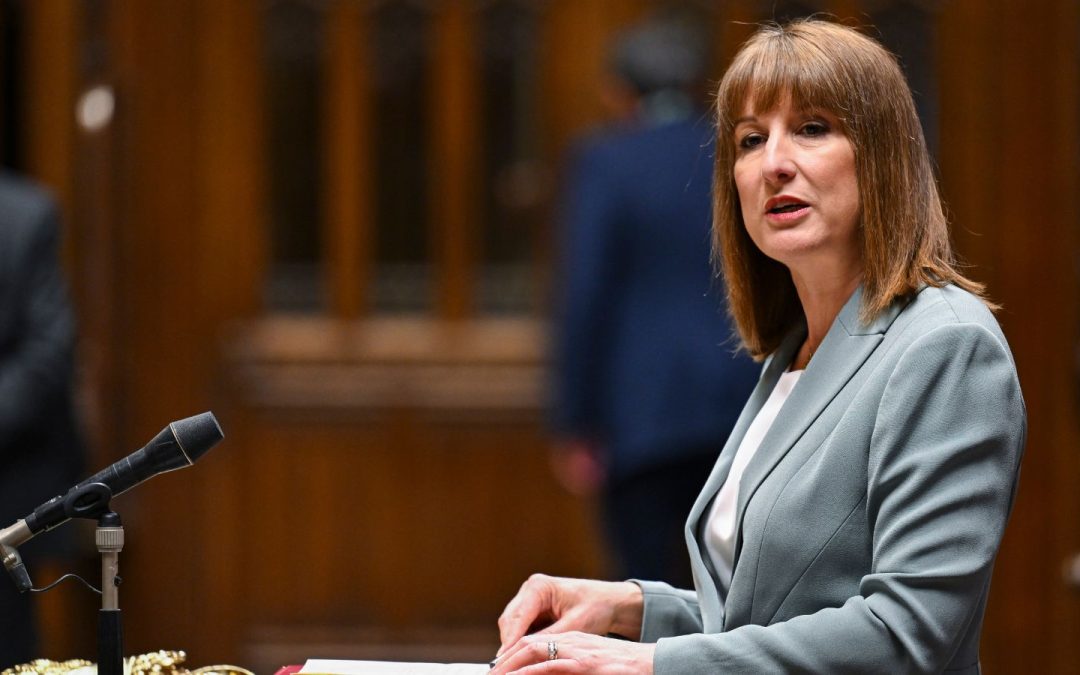Nine UK supermarkets have written to Chancellor Rachel Reeves in a letter organised by the British Retail Consortium (BRC), urging her to exclude shops from the proposed business rates surtax.
The letter stated that the “growing cost pressures” on the retail industry had resulted in “food inflation rising steadily” over the last year. It said that the rising rate of inflation was expected to rise further, carrying headline inflation with it and “limiting the ability of the Bank of England to lower interest rates”.
It went on to say: “The IMF estimates that the UK will have the highest inflation in the G7 in 2025 and 2026. This matters to millions of ordinary people who are struggling with the cost-of-living, and it will continue to matter until food inflation can be brought to heel.
“The latest Asda-CEBR Income Tracker shows that 60% of UK households saw a drop in weekly disposable income, as rising costs for essentials like food and transport continues to outpace wage growth. This gap between income and everyday costs is widening, for lower-income households, who are least able to manage such costs.
“According to the Bank of England, the current inflationary pressures are being exacerbated by the increased tax and cumulative regulatory burden faced by retailers and their supply chains. The last Budget introduced over £7 billion in additional costs on retailers, from increases to employer National Insurance Contributions (NICs) and employment costs, to the new EPR packaging tax and rise in the business rates multiplier. Supermarkets, given our large labour force of almost a million colleagues, have been disproportionately affected.”
The letter highlighted that the UK grocery market is “highly competitive with narrow profit margins”, and said that if the industry faces higher taxes in the Budget, its ability to deliver value “will become more challenging”, with households set to feel the impact.
It said that with the current costs falling on industry, high food inflation was “likely to persist” into 2026.
It continued: “It is for these reasons that we would ask you to ensure that the proposed changes to business rates result in a significant reduction to the industry’s rates burden. While we are pleased the Government is committed to supporting smaller retail properties – it is equally important that large shops are excluded from the proposed business rates surtax for premises with a rateable value of £500,000 or above.
“It is these premises that support hundreds of thousands of jobs, provide valuable services that may not be otherwise accessible to local communities and drive footfall to nearby smaller businesses. As we have previously outlined, this can be done at no cost to the Treasury and with only a marginal increase in the new higher rate for large non-retail properties, for whom rates is a much smaller proportion of their costs.
“Starting to address retail’s disproportionate tax burden would send a strong signal of support for the industry and of the Government’s commitment to tackling food inflation. Such a move would help provide the conditions to bolster the investment in our communities that we are so keen to help deliver and be warmly welcomed by the industry.”
Signatories of the letter included:
- Giles Hurley, chief executive officer, Aldi UK and Ireland
- Michael Gleeson, chief financial officer, Asda
- Tarsem Dhaliwal, chief executive officer, Iceland
- Ryan McDonnell, chief executive officer, Lidl GB
- Alex Freudmann, food managing director, Marks & Spencer
- Rami Baitieh, chief executive officer, Morrisons
- Simon Roberts, chief executive officer, Sainsbury’s
- Ken Murphy, group chief executive officer, Tesco
- Tina Mitchell, managing director, Waitrose
“From higher National Insurance contributions to new packaging taxes, the financial strain on the industry is immense.”
Speaking on the letter, Helen Dickinson, chief executive of the BRC, said: “Supermarkets are doing everything possible to keep food prices affordable, but it’s an uphill battle, with over £7 billion in additional costs in 2025 alone. From higher National Insurance contributions to new packaging taxes, the financial strain on the industry is immense.
“Large retail stores sustain nearly one million British jobs and already contribute a third of all retail’s business rates, despite being a tiny proportion of all stores. This letter calls on the Chancellor to exempt shops from the new business rates surtax – levied on all large commercial premises. This would not only help to tackle food inflation but would support jobs and investment right across the country.
“The Chancellor has rightly made tackling inflation her top priority, and with food inflation stubbornly high, ensuring retail’s rates burden doesn’t rise further would be one of the simplest ways to help. This would not cost the taxpayer a penny, with large office blocks and industrial plants, for whom business rates is a smaller proportion of their costs, paying a little more.”









